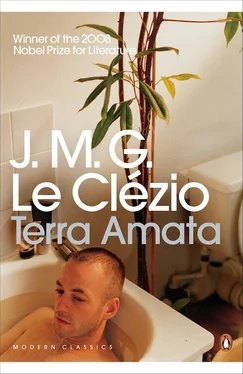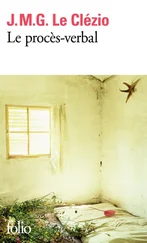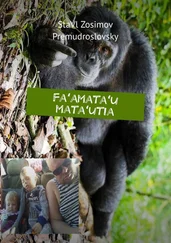SUN
Now you can talk to him, call him by his name, mumble the incomprehensible litanies. You can meet his gaze too, until your eyes begin to burn and veil themselves with tears. You can take a pair of those thick-lensed glasses and let the pewter-coloured globe glide down their dull screen. The white star floats in the evening sky. It hangs alone in the middle of the heavens like an electric light bulb. Or like a single nickel coin shining on a black table.
Now is the moment to look straight at him from the floating plateau of the earth, and call upon him. So as not to forget him, give him the name of some man or beast. Kax — he shall be called Kax. Kax looks down on the earth. Kax warms the trunks of the trees. Kax reduces the little lumps of mud to powder.
A lens held over the earth, which makes everything visible. Held over the infinitesimal spark of light hidden in the mass of dust and ashes, the little white spark from which comes life and from which, perhaps in a few seconds, will spring the first paper-burning flame.
The light pours down, the brightness whirls and vibrates unwearyingly. For Kax is not kind. He is a pitiless monster that seeks to destroy the world. He throws his invisible darts, he gnaws and scrapes imperceptibly at everything within reach, and every evening when he disappears below the horizon you hear a great sigh of peace over all the earth.
Down below on the earth is the army of insects. There are insects of every colour, some black as jet, some blue, some grey, some yellow, some red and gold, some red and green, some purple, some iridescent. They perch on every green leaf, preening their legs and wings. Some are motionless, like drops of blood. Others walk and walk without stopping, clutching on to the fine hairs of the grasses with their little crooked legs. Others hover with throbbing abdomen. Yet others swim in puddles. You could never finish counting them. You could never finish killing them one by one.
Every so often a butterfly darts about madly through the warm air. Behind the great blocks of mossy stone the worms stuff their pale bellies. Or a centipede swiftly unwinds and with its thousand feet digs itself a hole to hide in. This is the world of the dung-beetles, scorpions and termites. Bulging eye, quivering feeler, hard cold black body that creeps between the grains of earth.
And each one has its name. Like so many little men they each have their magic identity. There’s one mosquito that’s called Sepia, and another Darius, and another Ananda. There’s the blowfly Truming. The cockroach Bryant. The caterpillar Alex. The flea Maria. The grasshopper Smythe, and the grasshopper Eole. There’s the bed-bug Marcelle. The tick Galapago. The mason-wasp Giordano. The black spider Sanka. The butterfly Dorian, the moth Kazan. There’s Anya the ladybird, Knock the praying mantis, Furious the fish and Go the cockchafer.
They are all there. Each one with its name, its tiny solemn life, its eggs, its larvae, the things it eats, its excrement. Each with its lurking danger of death, making the heart tremble deep within the hermetic carapace. Each with its hole, its familiar paths, its places for hunting or love, its flowers, its pebble mountains. You must be there with them at the right moment, and call them softly, mysteriously, by their names.
But there are also the plants, and the other animals. Azor the dog, Pussy the cat, Coco the parrot. And every blade of grass, its special name written in every fibre, that yields beneath the weight of the wind. Manuel, Kalar, Gélo, Silicoe, Amadeus, Prixt, Tony, Gaur, Terence, Gilbert the olive-tree, Anatole the cactus. Jeremy the cork-oak, Waterman the bamboo. Each blade of grass sticking up out of the ground like a hair and leading its own silent life. Each of these trees, each of these flowers, each of these stones or ponds, must be given a name so as not to be forgotten. This round stone shall be called Sib-Song, this sharp one Moroboc. That crow just flying by is Pliny. That horse with a galled back is Goiran. That bit of broken bottle is Roland. It reflects light from the sky Han, caught between the branches of the cherry-tree Otho and Gregory, the dusty boulder. The seagull Antar hovers over Maa the sea, between the wave Solange and the wave Simone.
And when you’d given everything, each animal and each plant, a name, you’d never be alone again. All over this huge landscape beaten down on endlessly by the sun, these names are linked with one another by fine, almost invisible threads. They contain every story, every adventure. Countless. Ceaseless. Millions of little dramas, billions of little tragi-comedies, thrillers, corridas, tournaments, wars, processions, in which every twig and pebble has its part. Yes, it’s here one ought to sit down, on a rock in the middle of the earth, or lie down on the hard grass, and write the whole history of the world. You could start on the first page of a big black exercise-book, and write in capital letters:
HISTORY OF THE WORLD
It would contain all the miniature epics, all the combats and massacres and exoduses. Chapter CXXII, for example, would tell of the destruction of Tsin, city of the ants, and of the long march to the mound where they were to build their new town.
Chapter DXCIV would have the adventure of Nathan the crab. It would set down how Nathan, washed ashore in a storm with three broken legs, crawled under the cruel sun to the pool of Banatovoro, there to reign as absolute lord until he was four years old, when he was crushed to death by a falling rock.
Chapter CMXCIX would give a biography of Fueco, the salamander without a tail.
Chapter MDCCII would treat of the fight to the death between the two tarantulas, Brux and Géochs, for Waïon the female.
And Chapter MMMCCCXLVI would relate how a thunderbolt fell one summer night on the oak-tree Zaba, and split it in two, and how the fire spread all over the mountain, burning thousands of trees and animals to death in a few hours.
Here, as everywhere else, lots of things happened. On this portion of earth once inhabited, then deserted, the sun struck down with all its strength. The rocks wore gently away, imperceptibly dropping their sweat of sand and gravel. The plants grew peacefully, their little identical leaves all stretching out towards the light. And in the earth the hairy roots sought without moving for the crystals, drank the water, and dissolved the salts. It was like a pot of flowers, but very large, a sort of Japanese garden in which everything stays where it is. Here the aloes. There the blue-painted stream and the pond made from a piece of mirror. Yonder the twisted rock, elaborate as a piece of coral. Near the rock the grove of Aaron’s rod, and close by a few clumps of grass, a dwarf cactus, and a plant that smells of mint. A bed of geraniums. By the looking-glass lake, a temple the size of a match-box, and a toll-gate. Some pink flamingoes perch on their long thin legs. And just by the bank, facing the unknown, a man in a conical hat carries a streamer on which is written:

There’s no escaping this country. No escaping these names, these labels everything bears in being itself. It is also a prison, but light and without walls, where all that happens has a secret meaning that enchains you. Try as you may to run away, to hide in dark caves or dim bushes, it’s useless. You can’t escape. You can’t ever get away. You’re continually overcome by blows dealt you from all directions at once by beauty — great, cruel, delightful beauty. Towns, the houses of men, beaches, cars, the sunken lanes that wind among the hills, and the swirls of noisy torrents — you can hide in none of them. Beauty always finds you and comes gently, pitilessly, to drag you out and plunge you once more into the living vortex. She has claws and fangs and a calm imperious voice, and she hurts you, hurts you at the same time as she helps you. Beauty.
Читать дальше













